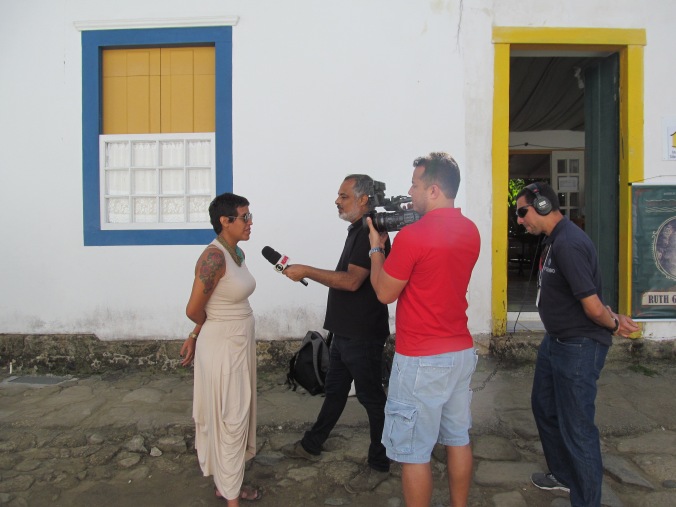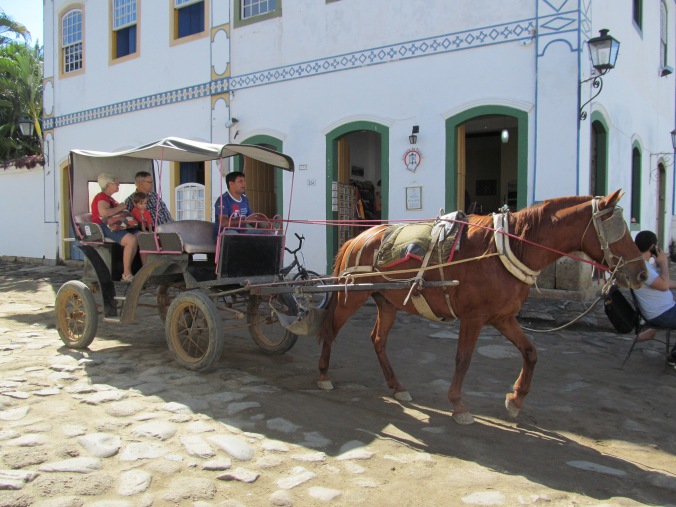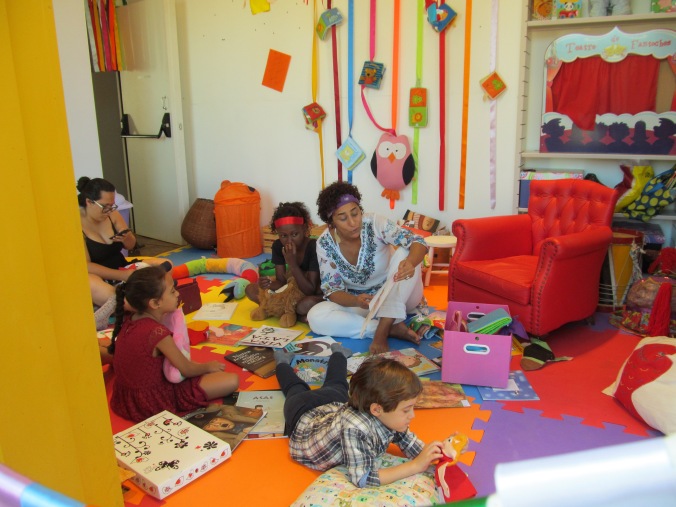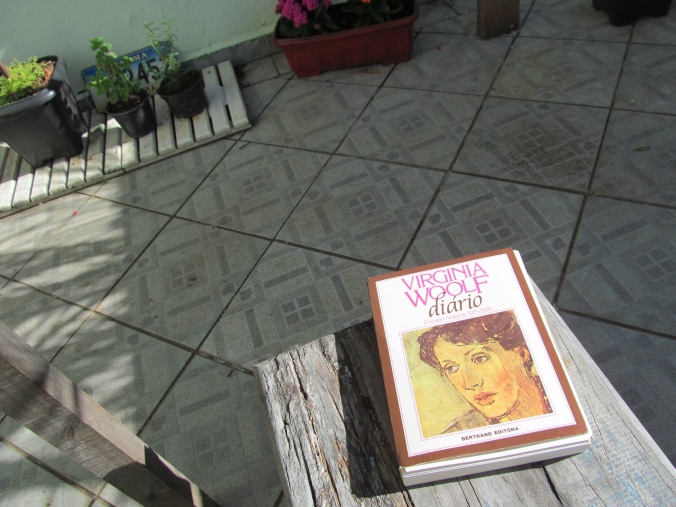The Germans were over this house last night and the night before that. Here they are again. It is a queer experience, lying in the dark and listening to the zoom of a hornet which may at any moment sting you to death. It is a sound that interrupts cool and consecutive thinking about peace. Yet it is a sound—far more than prayers and anthems—that should compel one to think about peace. Unless we can think peace into existence we—not this one body in this one bed but millions of bodies yet to be born—will lie in the same darkness and hear the same death rattle overhead. Let us think what we can do to create the only efficient air-raid shelter while the guns on the hill go pop pop pop and the searchlights finger the clouds and now and then, sometimes close at hand, sometimes far away a bomb drops.
Up there in the sky young Englishmen and young German men are fighting each other. The defenders are men, the attackers are men. Arms are not given to Englishwomen either to fight the enemy or to defend herself. She must lie weaponless tonight. Yet if she believes that the fight going on up in the sky is a fight by the English to protect freedom, by the Germans to destroy freedom, she must fight, so far as she can, on the side of the English. How far can she fight for freedom without firearms? By making arms, or clothes or food. But there is another way of fighting for freedom without arms; we can fight with the mind. We can make ideas that will help the young Englishman who is fighting up in the sky to defeat the enemy.
But to make ideas effective, we must be able to fire them off. We must put them into action. And the hornet in the sky rouses another hornet in the mind. There was one zooming in The Times this morning—a woman’s voice saying, “Women have not a word to say in politics.” There is no woman in the Cabinet; nor in any responsible post. All the idea makers who are in a position to make ideas effective are men. That is a thought that damps thinking, and encourages irresponsibility. Why not bury the head in the pillow, plug the ears, and cease this futile activity of idea making? Because there are other tables besides officer tables and conference tables. Are we not leaving the young Englishman without a weapon that might be of value to him if we give up private thinking, tea-table thinking, because it seems useless? Are we not stressing our disability because our ability exposes us perhaps to abuse, perhaps to contempt? “I will not cease from mental fight,” Blake wrote. Mental fight means thinking against the current, not with it.
The current flows fast and furious. It issues in a spate of words from the loudspeakers and the politicians. Every day they tell us that we are a free people, fighting to defend freedom. That is the current that has whirled the young airman up into the sky and keeps him circling there among the clouds. Down here, with a roof to cover us and a gas mask handy, it is our business to puncture gas bags and discover seeds of truth. It is not true that we are free. We are both prisoners tonight—he boxed up in his machine with a gun handy; we lying in the dark with a gas mask handy. If we were free we should be out in the open, dancing, at the play, or sitting at the window talking together. What is it that prevents us? “Hitler!” the loudspeakers cry with one voice. Who is Hitler? What is he? Aggressiveness, tyranny, the insane love of power made manifest, they reply. Destroy that, and you will be free.
The drone of the planes is now like the sawing of a branch overhead. Round and round it goes, sawing and sawing at a branch directly above the house. Another sound begins sawing its way into the brain. “Women of ability”—it was Lady Astor speaking in The Times this morning—“are held down because of a subconscious Hitlerism in the hearts of men.” Certainly we are held down. We are equally prisoners tonight—the Englishmen in their planes, the Englishwomen in their beds. But if he stops to think he may be killed; and we too. So let us think for him. Let us try to drag up into consciousness the subconscious Hitlerism that holds us down. It is the desire for aggression; the desire to dominate and enslave. Even in the darkness we can see that made visible. We can see shop windows blazing; and women gazing; painted women; dressed-up women; women with crimson lips and crimson fingernails. They are slaves who are trying to enslave. If we could free ourselves from slavery we should free men from tyranny. Hitlers are bred by slaves.
A bomb drops. All the windows rattle. The anti-aircraft guns are getting active. Up there on the hill under a net tagged with strips of green and brown stuff to imitate the hues of autumn leaves guns are concealed. Now they all fire at once. On the nine o’clock radio we shall be told “Forty-four enemy planes were shot down during the night, ten of them by anti-aircraft fire.” And one of the terms of peace, the loudspeakers say, is to be disarmament. There are to be no more guns, no army, no navy, no air force in the future. No more young men will be trained to fight with arms. That rouses another mind-hornet in the chambers of the brain—another quotation. “To fight against a real enemy, to earn undying honor and glory by shooting total strangers, and to come home with my breast covered with medals and decorations, that was the summit of my hope…. It was for this that my whole life so far had been dedicated, my education, training, everything….”
Those were the words of a young Englishman who fought in the last war. In the face of them, do the current thinkers honestly believe that by writing “Disarmament” on a sheet of paper at a conference table they will have done all that is needful? Othello’s occupation will be gone; but he will remain Othello. The young airman up in the sky is driven not only by the voices of loudspeakers; he is driven by voices in himself—ancient instincts, instincts fostered and cherished by education and tradition. Is he to be blamed for those instincts? Could we switch off the maternal instinct at the command of a table full of politicians? Suppose that imperative among the peace terms was: “Childbearing is to be restricted to a very small class of specially selected women,” would we submit? Should we not say, “The maternal instinct is a woman’s glory, It was for this that my whole life has been dedicated, my education, training, everything.” …But if it were necessary for the sake of humanity, for the peace of the world, that childbearing should be restricted, the maternal instinct subdued, women would attempt it. Men would help them. They would honor them for their refusal to bear children. They would give them other openings for their creative power. That too must make part of our fight for freedom. We must help the young Englishmen to root out from themselves the love of medals and decorations. We must create more honorable activities for those who try to conquer in themselves their fighting instinct, their subconscious Hitlerism. We must compensate the man for the loss of his gun.
The sound of sawing overhead has increased. All the searchlights are erect. They point at a spot exactly above this roof. At any moment a bomb may fall on this very room. One, two, three, four, five, six … the seconds pass. The bomb did not fall. But during those seconds of suspense all thinking stopped. All feeling, save one dull dread, ceased. A nail fixed the whole being to one hard board. The emotion of fear and of hate is therefore sterile, unfertile. Directly that fear passes, the mind reaches out and instinctively revives itself by trying to create. Since the room is dark it can create only from memory. It reaches out to the memory of other Augusts—in Bayreuth, listening to Wagner; in Rome, walking over the Campagna; in London. Friends’ voices come back. Scraps of poetry return. Each of those thoughts, even in memory, was far more positive, reviving, healing and creative than the dull dread made of fear and hate. Therefore if we are to compensate the young man for the loss of his glory and of his gun, we must give him access to the creative feelings. We must make happiness. We must free him from the machine. We must bring him out of his prison into the open air. But what is the use of freeing the young Englishman if the young German and the young Italian remain slaves?
The searchlights, wavering across the flat, have picked up the plane now. From this window one can see a little silver insect turning and twisting in the light. The guns go pop pop pop. Then they cease. Probably the raider was brought down behind the hill. One of the pilots landed safe in a field near here the other day. He said to his captors, speaking fairly good English, “How glad I am that the fight is over!” Then an Englishman gave him a cigarette, and an English woman made him a cup of tea. That would seem to show that if you can free the man from the machine, the seed does not fall upon altogether stony ground. The seed may be fertile.
At last all the guns have stopped firing. All the searchlights have been extinguished. The natural darkness of a summer’s night returns. The innocent sounds of the country are heard again. An apple thuds to the ground. An owl hoots, winging its way from tree to tree. And some half-forgotten words of an old English writer come to mind: “The huntsmen are up in America….” Let us send these fragmentary notes to the huntsmen who are up in America, to the men and women whose sleep has not yet been broken by machine-gun fire, in the belief that they will rethink them generously and charitably, perhaps shape them into something serviceable. And now, in the shadowed half of the world, to sleep.
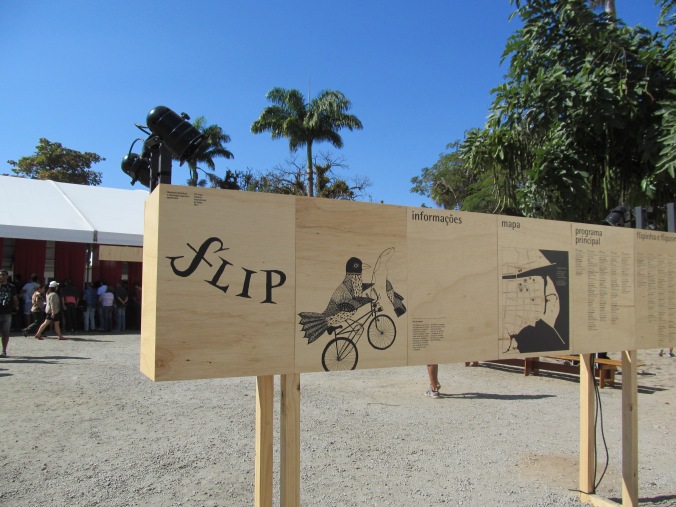 Uma das coisas que tinha há exatamente 15 anos marcada na minha “wish list” era assistir à Flip – Festa Literária Internacional de Paraty. Como assim que eu, do jeito que gosto de livros, de ler, de conhecer vidas e histórias, ainda não havia conseguido ir? Pois é…acredito no tempo exato para passar por experiências na vida e esse tempo era agora. A Flip 2017 comemora 15 anos e o homenageado, Lima Barreto, um dos mais importantes escritores brasileiros e presença obrigatória em qualquer biblioteca do Brasil e do mundo, fez bonito. Conheci Afonso Henriques de Lima Barreto por recomendação do Ricardo Reis, meu irmão de Jataí. Um dia ele me deu uma edição barata, comprada num sebo da Luz, em São Paulo. Me disse que eu precisava conhecer Lima Barreto urgentemente. Ele estava certo. Apartir de então, gostei desse carioca de origem humilde, negro numa Rio de Janeiro marcada pela divisão de classes, mas que soube aproveitar a influencia das belas letras europeias que chegavam do outro lado do Atlântico. Foi difícil, ainda o é, ser numa sociedade que faz de tudo para humilhar, para te convencer que você não é ninguém, que você vale menos que um pedaço de pau.
Uma das coisas que tinha há exatamente 15 anos marcada na minha “wish list” era assistir à Flip – Festa Literária Internacional de Paraty. Como assim que eu, do jeito que gosto de livros, de ler, de conhecer vidas e histórias, ainda não havia conseguido ir? Pois é…acredito no tempo exato para passar por experiências na vida e esse tempo era agora. A Flip 2017 comemora 15 anos e o homenageado, Lima Barreto, um dos mais importantes escritores brasileiros e presença obrigatória em qualquer biblioteca do Brasil e do mundo, fez bonito. Conheci Afonso Henriques de Lima Barreto por recomendação do Ricardo Reis, meu irmão de Jataí. Um dia ele me deu uma edição barata, comprada num sebo da Luz, em São Paulo. Me disse que eu precisava conhecer Lima Barreto urgentemente. Ele estava certo. Apartir de então, gostei desse carioca de origem humilde, negro numa Rio de Janeiro marcada pela divisão de classes, mas que soube aproveitar a influencia das belas letras europeias que chegavam do outro lado do Atlântico. Foi difícil, ainda o é, ser numa sociedade que faz de tudo para humilhar, para te convencer que você não é ninguém, que você vale menos que um pedaço de pau.